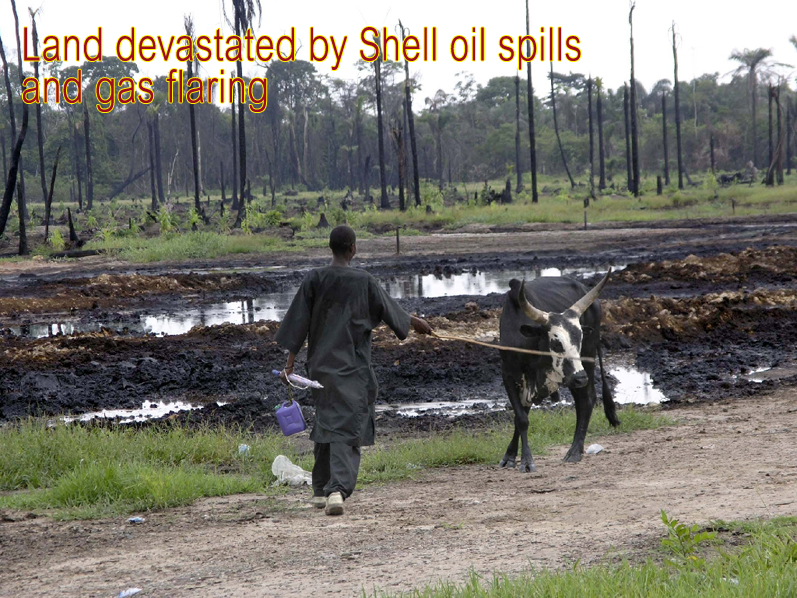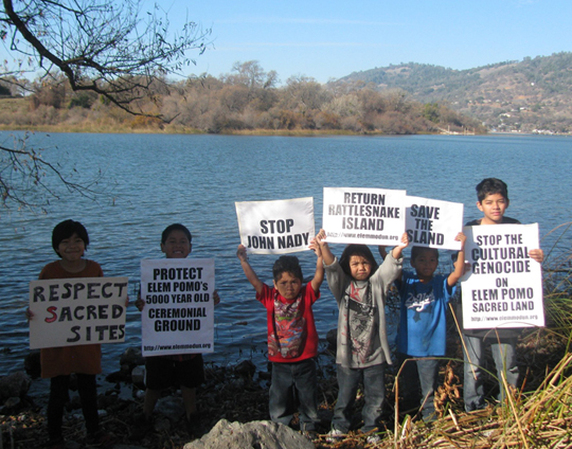
In this month’s Underreported Struggles: O’odham Sacred site threatened by gold mine; appeal for Meitei women launched after brutal assault by Manipur police; The Movement for the Survival of Ogoni People imitate their own environmental protection agency.
Featured: After more than 6 months of research and preparation, Intercontinental Cry launched “Indigenous Peoples of the World” an online directory for all Indigenous Nations ever mentioned on the website. The directory, which you can access here, currently features 412 distinct populations in 78 countries.
The Citizens’ Concern for Dams and Development (CCDD) issued an urgent appeal concerning a brutal assault on a group of eleven Meitei women who were protesting against the ongoing forced evictions at Loktak Lake in Manipur, India. The Manipur police charged at the women with batons during a protest at the Thanga Ithing Village in Chingjinon December 19. The police also fired tear gas and about 200 rounds of ammo in an attempt to disperse the protesting women. However, that attempt ultimately failed. At the time the evictions were last reported on Intercontinental Cry (November 19) nearly 200 homes had already been set ablaze. That count has since risen to 1,147.
According to the Indigenous Organization of Colombia (ONIC) over a hundred indigenous leaders were murdered in Colombia throughout the course of 2011. Many of the deaths have a direct link with the demands for land by the native communities. “Currently, we’ve started coordinating with the government but this doesn’t mean we are satisfied. Our territories are permanently invaded by armed groups and are being used to grow illegal crops”, said an ONIC adviser, in an interview with the radio show Otra Mirada.
The Hopi lost a court bid to stop the city of Flagstaff from selling treated sewage water to Arizona Snowbowl. Coconino County Superior Court Judge Joe Lodge, who ruled in favor of the city, stated that the substantial components of the case had already been decided in federal court, and the tribe was legally required to raise its objections earlier. A different case litigating snowmaking on health and environmental grounds is headed for oral arguments in January at the 9th U.S. Circuit Court of Appeals.
 Photo Credit: Friends of the EarthThe Movement for the Survival of Ogoni People (MOSOP), an Ogoni-based non-governmental, non-political organization for the Ogoni people of South-Eastern Nigeria, have announced the creation of a new Environmental Protection Agency to make sure that oil companies operating in Ogoniland, like Chevron and Royal Dutch Shell, are held accountable for their ‘environmental crimes’.
Photo Credit: Friends of the EarthThe Movement for the Survival of Ogoni People (MOSOP), an Ogoni-based non-governmental, non-political organization for the Ogoni people of South-Eastern Nigeria, have announced the creation of a new Environmental Protection Agency to make sure that oil companies operating in Ogoniland, like Chevron and Royal Dutch Shell, are held accountable for their ‘environmental crimes’.
After being saved from a toxic waste dump more than three years ago, the O’odham Sacred site of Quitovac is once again facing a serious threat. In late September, the US mining company Silver Scott Mines announced that it had acquired a 12,000 hectare concession near the site of Quitovac in Sonora, Mexico. Traditional O’odham Leaders issued a resolution condemning the company’s intentions, and requesting that the Mexican Federal Government and the Government of the State of Sonora intervene in accordance with existing cultural and environmental protections laws of Mexico. The O’odham have also asked PROFEPA (Attorney General for Environmental Protection) to stop the proposed open pit mine operations .The company has since initiated a 6000-meter drilling program at the Quitovac gold mine site.
A Chilean Court ordered the Chilean police force to refrain from using tear gas in the homes of Mapuche communities near Ercilla. The court’s order also stated that tear gas should not be used when women, children or elderly people are present. The case was brought by the Mapuche community of Wente Winkul Mapu, after their homes were raided by officers firing tear gas in November of this year. The court’s decision cited several international law instruments, including ILO Convention 169.
The Inter-American Commission on Human Rights (IACHR) revoked its formal request to suspend operations at the controversial Marlin Mine in Guatemala. The IACHR’s action follows a petition by the Presidential Commission on Human Rights, on behalf of the Government of Guatemala, which rountinely refused to obey the IACHR. Goldcorp was delighted to hear the news.
The Boreal Forest Network, the Boreal Action Project and the Winnipeg Indigenous Peoples Solidarity Movement sent out a call for a complete boycott of all Weyerhaeuser forest products until the company ceases all logging and sourcing in the contested traditional territories of Grassy Narrows First Nation, or as long as there is community opposition to those operations. You can take part in the action here.
 Some 200 Indigenous people and supporters marched to the home of John Nady, a millionaire who is desecrating Rattlesnake Island, the spiritual center of the Elem community of Southeastern Pomo. John Nady, who invented the wireless microphones used by many A-list musicians, purchased the island eight years ago for a reported $2.5 million. Since then, Nady has been pushing to build two so-called “sustainable vacation homes” on the island. Nady began construction work on one of the homes in late November.
Some 200 Indigenous people and supporters marched to the home of John Nady, a millionaire who is desecrating Rattlesnake Island, the spiritual center of the Elem community of Southeastern Pomo. John Nady, who invented the wireless microphones used by many A-list musicians, purchased the island eight years ago for a reported $2.5 million. Since then, Nady has been pushing to build two so-called “sustainable vacation homes” on the island. Nady began construction work on one of the homes in late November.
Beowulf Mining, the British company behind the Kallak exploration project in Jokkmokk, Northern Sweden, was caught drilling on Saami lands in breach of the Swedish Minerals’ Act. Once this was pointed out to the Swedish Minerals Inspectorate by Saami representatives, the company had no choice but to stop drilling.
Indonesian police and military forces reportedly razed 26 villages and forcibly evacuated 130 more in a coordinated attack in Paniai Regency, West Papua. According to this initial report By Nick Chesterfield at West Papua Media, the December 13 attack was ostensibly aimed at breaking the armed pro-Independence movement. As many as twenty Papuans are believed to have been killed in the attack.
Defenders of the Land (DotL) condemned the Harper government for using police to spy on First Nations instead of addressing Canada’s continued violation of Indigenous Peoples’ rights. Adding insult to injury, DotL indicates that the surveillance is being shared with private industry.
It’s been more than one month since Peru’s government sent investigators to the Amazon to probe the brutal murders and mutilation of at least 14 shamans, traditional healers or medicos, of the indigenous Shawi people of Peru’s northern border region near Ecuador. So far, no arrests have been made. Alberto Pizango, Peru’s top indigenous leader and president of the country’s most powerful indigenous organization, AIDESEP, blames the deaths on cash and pressure from legal and illegal industries in the Amazon who poach natural resources from indigenous lands.
 Photo Credit: ‘Save The Kimberley’ on facebookTraditional land owners won a major victory in their long-running battle against the proposed Woodside gas hub project at James Price Point on Western Australia’s Kimberley coast. WA Supreme Court Justice Wayne Martin issued a ruling in favour of the Goolarabooloo Traditional owners, finding that the WA government acted illegally when it used ‘compulsory acquisition’ notices to take Goolarabooloo lands for the proposed gas hub. Unfortunately, the government does not seem the least bit phased by the decision.
Photo Credit: ‘Save The Kimberley’ on facebookTraditional land owners won a major victory in their long-running battle against the proposed Woodside gas hub project at James Price Point on Western Australia’s Kimberley coast. WA Supreme Court Justice Wayne Martin issued a ruling in favour of the Goolarabooloo Traditional owners, finding that the WA government acted illegally when it used ‘compulsory acquisition’ notices to take Goolarabooloo lands for the proposed gas hub. Unfortunately, the government does not seem the least bit phased by the decision.
Canadian lawyers for Mr. German Chub Choc announced an Ontario lawsuit against Canadian mining company HudBay Minerals over a brutal shooting in Guatemala two years ago that left Mr. Chub a paraplegic. This is the third human rights lawsuit launched in Ontario against HudBay related to violence at its formerly-owned Fenix Mining Project in eastern Guatemala. For more information on all cases, see www.chocversushudbay.com
The Tsilhqot’in people celebrated a B.C. Supreme Court judge’s decision to grant an injunction against Taseko Mines Ltd, prohibiting the company from carrying out any more exploration work on Tsilhqot’in traditional lands for 90 days. Taseko had been seeking its own injunction and enforcement order to prevent anyone from blocking a road to the company’s Prosperity mine project. The Supreme Court judge overruled the company’s application.
More than half of the members of the Wayana indigenous communities of Apetina and Anapayke in southeastern Suriname have mercury levels above World Health Organization’s recommended limits, due to small-scale gold mining in the area, according to a research article by the Suriname Indigenous Health Fund and University of Washington-Seattle. Mercury, used in gold mining to separate the precious metal from other materials, seeps into the water supply and soil.
A Samburu community’s struggle to hold on to their ancestral land and their grazing rights, has taken a turn for the worst. Following a recent court decision to block the creation of a new national park that would envelop the community’s land, in late November, more than 300 police officers went to the community, killed at least one Samburu elder and confiscated as many as 10,000 of their cattle, goats and sheep.
Videos of the Month
The Psychic Landscape of Contemporary Colonialism: A talk by Kanien’kehaka Educator, Author and Activist Taiaiake Alfred.
First Earth: Uncompromising Ecological Architecture: a documentary about the movement towards a massive paradigm shift for shelter — building healthy houses in the old ways. Available in 12 languages!
A Voice in the Desert: examines a cultural unity that has been interrupted, dissected and transformed by an arbitrary line: the US border.
Manoomin: The Sacred Food: a short documentary on the Anishinaabeg of Northern Minnesota and the wild rice (Manoomin) they consider to be a sacred gift from Creator.
Face to Face with Graham Russell: Are Canadian mining companies getting away with murder? In this 30-minute interview, Grahame Russell of Rights Action discusses the health, environmental and other heinous human rights violations caused by Canadian mining companies.

Indigenous Peoples are putting their bodies on the line and it's our responsibility to make sure you know why. That takes time, expertise and resources - and we're up against a constant tide of misinformation and distorted coverage. By supporting IC you're empowering the kind of journalism we need, at the moment we need it most.